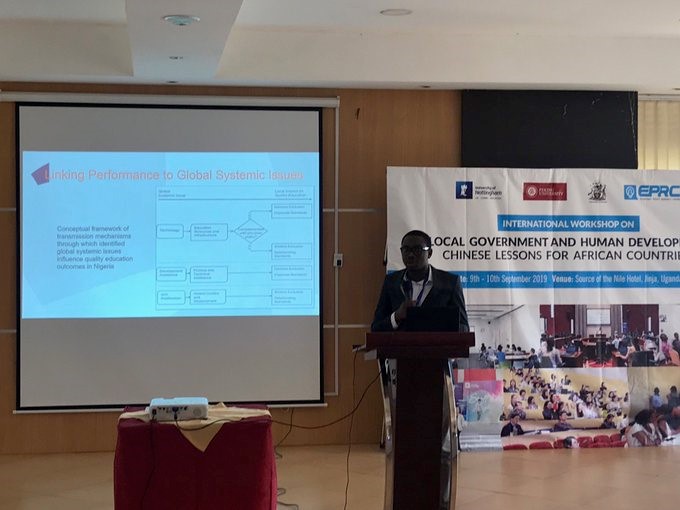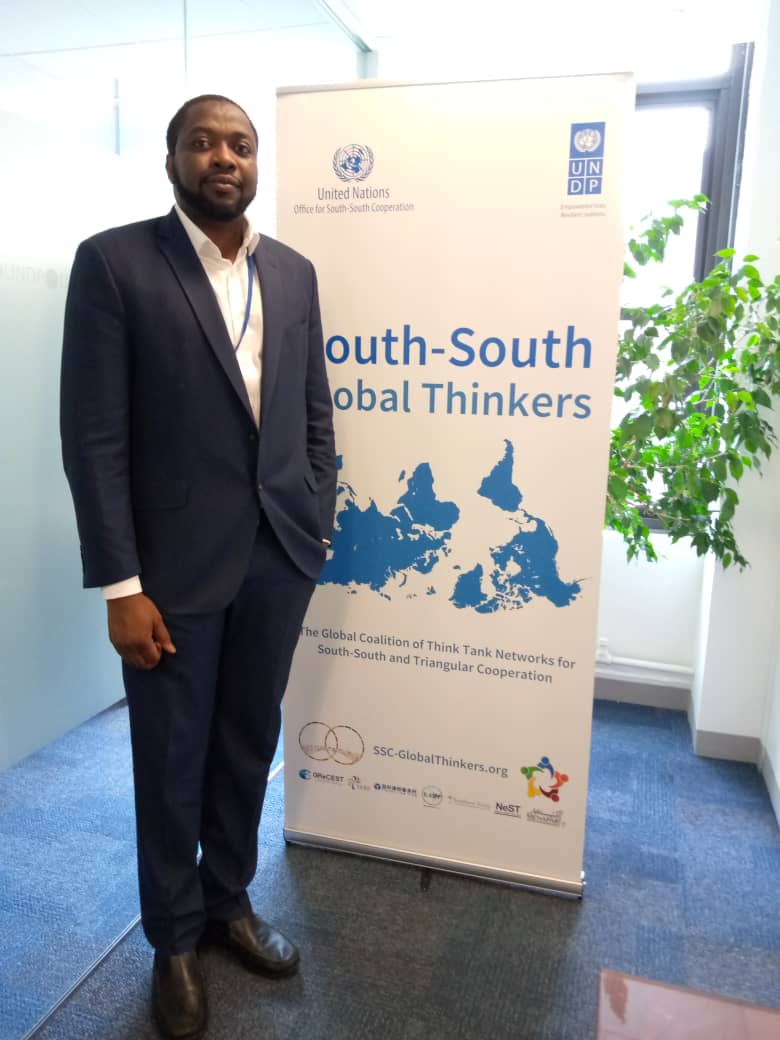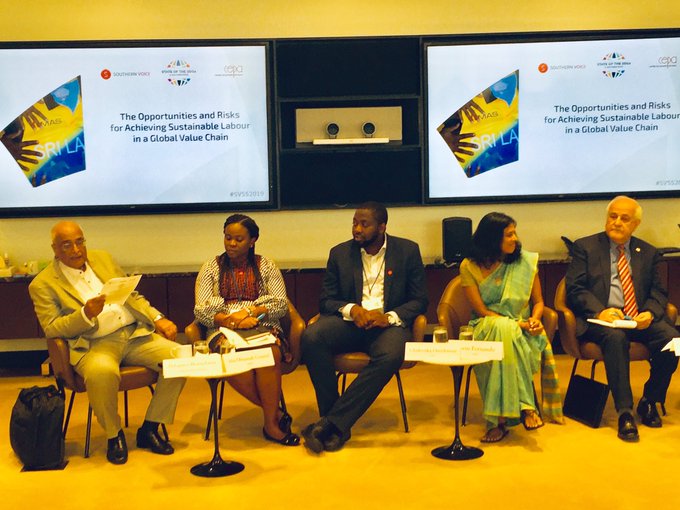

Globally, the trade in illicit tobacco products has increasingly been a source of concern for policymakers, development practitioners, and health officials owing to the adverse social and economic impact on public health, government revenue, and the financial support to criminal networks. Every year, it is estimated that some 600 billion cigarettes, representing over 10 percent of the global cigarette consumption, pass through the black market (WHO, 2015). The pervasiveness of such trade has negative implication for society, especially developing countries who are already faced with weak fiscal capacity and health systems. It is estimated that African countries lose about €10 billion in tax, invariably increasing tobacco-induced health incidence and fatality. There is therefore broad agreement that illicit trade is bad both for government revenues and for public health—for all, except the members of the industry and criminal networks feeding on the illicit trade.
To highlight this issues and propose actionable policies, CSEA organized a workshop on November 30, 2020, to disseminate our report on illicit Tobacco Trade in Nigeria as part of the research conducted for the International Development Research Centre (IDRC) on Fostering Effective Tobacco Control Policy Implementation in Nigeria. Specifically, the report highlights the impact of tax changes on illicit tobacco trade as well as cost-effective measures for curbing illicit trade on tobacco products in Nigeria.
Participants were drawn from key stakeholders from the tobacco industry including representatives from the Nigeria Tobacco Control Alliance, Campaign for Tobacco Free Kids, Federal Inland Revenue Service, Tobacco Control Unit from the Federal Ministry of Health, Federal Ministry of Finance, Civil Society Legislative Advocacy Centre (CISLAC), Cedars Refuge Foundation, Federal Competition & Consumer Protection Commission (FCCPC), experts from the University of Abuja, Development Gateway, Federal Ministry of Trade and Investment and the Media.
Download the report for the workshop below
CSEA Senior research fellow, Dr. Adedeji Adeniran participated in a workshop organized by the Economic Policy Research Centre (EPRC) in Uganda. The workshop convened Policy makers, researchers, local government leaders and academics from UK and China meeting to discuss Chinese lessons for African Countries under the research theme “Local government, human development: Chinese lessons for African Countries” . The main aim of the research is to examine whether local authorities can accelerate economic growth and development, identifying and evaluating Chinese experiences and exploring whether there are lessons from this that are applicable to low income Africa.
Dr. Adeniran presented CSEA’s report on “Exclusion in education in Nigeria: The dimensions, drivers and implications for the SDGs”. The event held on September 9-10, in Jinja, Uganda.
Dr. Chukwuka Onyekwena participated at the Consultation with Southern-based Think Tanks for the 2019 Human Development Report which was co-hosted by the United Nations Office for SouthSouth Cooperation (UNOSSC) and the Human Development Report Office (HDRO). The consultation was organised specifically to: (i) hear stakeholder’s perspectives and experiences from Southern-based think tanks relating to inequality and related sub-themes, identify broad contours, and scope on the specific issues; and (ii) discuss key policy options and promote buy-in among the stakeholders. The meeting also aimed to gather the perspectives and experiences from Southern-based think tanks relating to inequality that will feed into the formulation of the 2019 Human Development Report. Dr. Onyekwena discussed technology, which is likely to widen inequality especially in Africa, given the differential access to technology between countries. The consultation was held on 18 July 2019, at UN HQ in New York, USA. The 2019 Human Development Report (HDR 2019) is scheduled to be released towards the end of this year; the report will focus on understanding relevant dimensions of inequality to people’s wellbeing.

Addis Ababa University (AAU) recently convened 41 education researchers representing 18 countries from across the continent for the ‘Leaders in African Education Research’ to debate research priorities and opportunities in order to deliver high-quality and impactful research.The workshop was convened by AAU, in collaboration with Centre for Global Development (CGD), DFID and the REAL Centre at the University of Cambridge. The LAER meetings aimed to elevate the evidence on African education published by individuals based in SSA and inform future approaches to partnership and research collaboration. The workshop provided a platform to share perspectives on several dimensions of education research as participants discussed priorities for educational research across the continent and criteria for selecting research to inform national, regional or international development agendas. The workshop also provided a platform for participants to share their experiences on the challenges and opportunities faced in delivering high-quality outputs. These include among others-limited access to data, publishing in reputable journals. CSEA research Associate, Joseph Ishaku participated in this workshop which was held on 16 and 17 July 2019 in Addis Ababa.
The United Nations Foundation and Southern Voice convened participants at a high-level event on the sidelines of the High-level Political Forum (HLPF) to discuss progress on the 2030 Agenda for the Southern Voice’s State of the SDGs research initiative.
The aim is to identify those who are “left behind” within diverse contextual realities, reveal the complex relationship of trade-offs and synergies among specific goals of the 2030 Agenda and to explore the global governance-related factors affecting country implementation.
The first phase of the research initiative has six country case studies which were conducted in six countries: India, Peru, Ghana, Nigeria, Sri Lanka and Bolivia. The studies from each country provides analysis and recommendations to improve the delivery of the Sustainable Development Goals (SDGs) which were presented by representatives of each of the organisations at the event.
CSEA’s Executive Director, Dr. Chukwuka Onyekwena, joined other participants to share recommendations, which emerged from CSEA’s case study ‘Is Nigeria on track to achieving quality education for all? Drivers and implications’. In his presentation titled "Beyond Local Policymakers and Education Practitioners: Global Considerations for Nigeria's quest for Quality Education", findings show that school-age children in the country are not acquiring basic literacy and numeracy skills. The report also identifies groups that are being excluded from quality education and the global forces that limit Nigeria’s capacity to deliver quality education.
The "State of the SDGs" report was launched as a side-event during the High-level Political Forum (HLPF) in New York on July 12, 2019.

